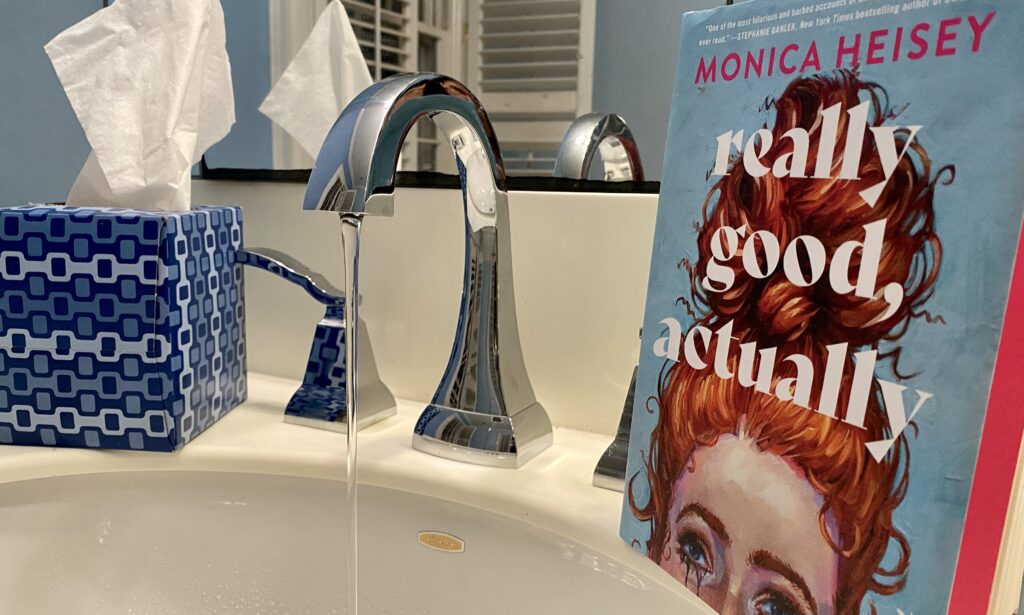After catapulting out of a childhood where I was raised by charmingly naïve parents, graduates of the Elizabeth Taylor School of Matrimony, I erroneously assumed I’d have at least one marriage that didn’t take. I imagined a warm but mismatched alliance that would grow cold before we ever found use for the strawberry tray from Williams-Sonoma. The concept of a “starter marriage” first entered common parlance in a 1994 New York Times article, “Starter Marriages: So Early, So Brief,” with this memorable quote from a young Ann Patchett: “People think these are disposable marriages, that you just waltz out. Oh my God, who waltzes out of a marriage?…But are you just going to stay and pay and pay and pay?”
Together a long time, married no time at all, Jon and Maggie soon feel divorce is inevitable in Monica Heisey’s novel, Really Good, Actually. Maggie teaches college in Toronto, and her life with Jon is reliably cozy and supportive until it just…isn’t. Theirs is not a marriage that falters due to abuse or affairs but because the relationship dwindles down to two settings: “quiet and exasperated.”
Post separation, just shy of thirty, Maggie quickly realizes that she has no idea what she wants. She tries out joy and rage, men and women, self-improving solitude and rescuing kittens. For a book low on plot and high on point of view, Really Good, Actually’s delight is in the details, and in Heisey’s world, the details crackle with fun. Maggie is beyond suspicious when a conventionally handsome man comes on to her after a dart-throwing calamity: “He had the calmly confident demeanor typical of the attractive, but there was an openness to him that suggested something else: an insistently supportive home environment maybe, or a religious upbringing. He looked like someone who thought heaven was real.”
A novel written by a former Schitt’s Creek writer is bound to mix pathos into the punchlines, and Heisey isn’t afraid to let this be Maggie’s Year of Living Obnoxiously. Dates, coworkers, even life-long friends become targets as Maggie courts chaos, using her wit as a weapon against those who want nothing but the best for her. When she feels abandoned by everyone, most of all herself, Maggie’s fantasies take a turn to the ethereal: “I am a murmuration, a lightly undulation spray of particles, moving easily around the earth without impacting it. I don’t miss anyone and have never fucked anything up.” Same, girl, same.
This story is an ADD gal’s dream, rapid-fire jokes interspersed with revealing lists of Google searches, and a particularly amusing series of conversations where everyone uses the same Japanese pottery metaphor to try to console Maggie. Yet it’s when the story slows down and softens that we see the outlines of a larger tale about loss and trauma and necessary, painful growth. This is the ride we always knew we were on, despite the carnival noise of Heisey’s darkly comic point of view.
It’s easy to picture any young woman emerging from her own starter marriage or even fraught “situationship” gobbling up this novel like a box of sea salt caramels. For the rest of us, Heisey’s book might serve more as a middle-of-the-stack selection, the sorbet you dip into between heavier literary courses. But then, who doesn’t like sorbet? Really Good, Actually is a Canadian Bridget Jones’s Diary for these particular times, albeit snarkier and more focused on the ride than the destination. For a summer book enthusiast, ready to laugh in the face of heartbreak, it might be just about perfect.

